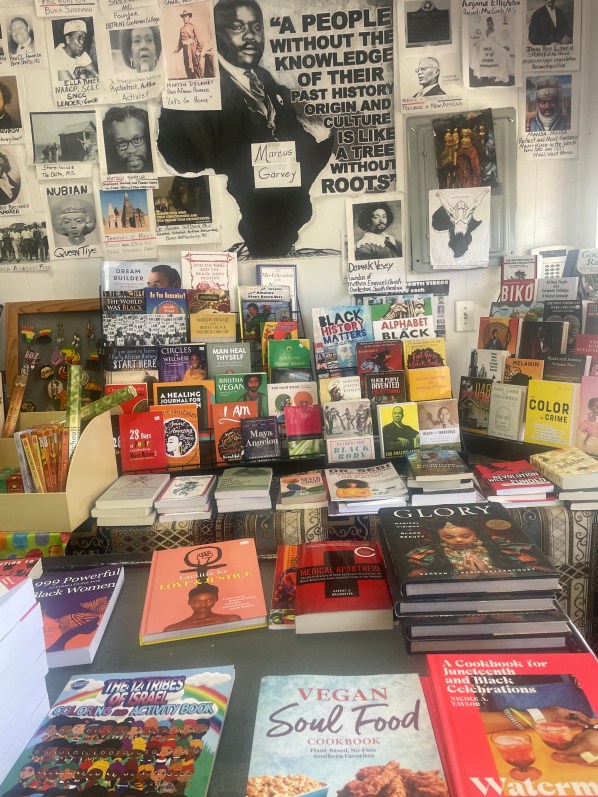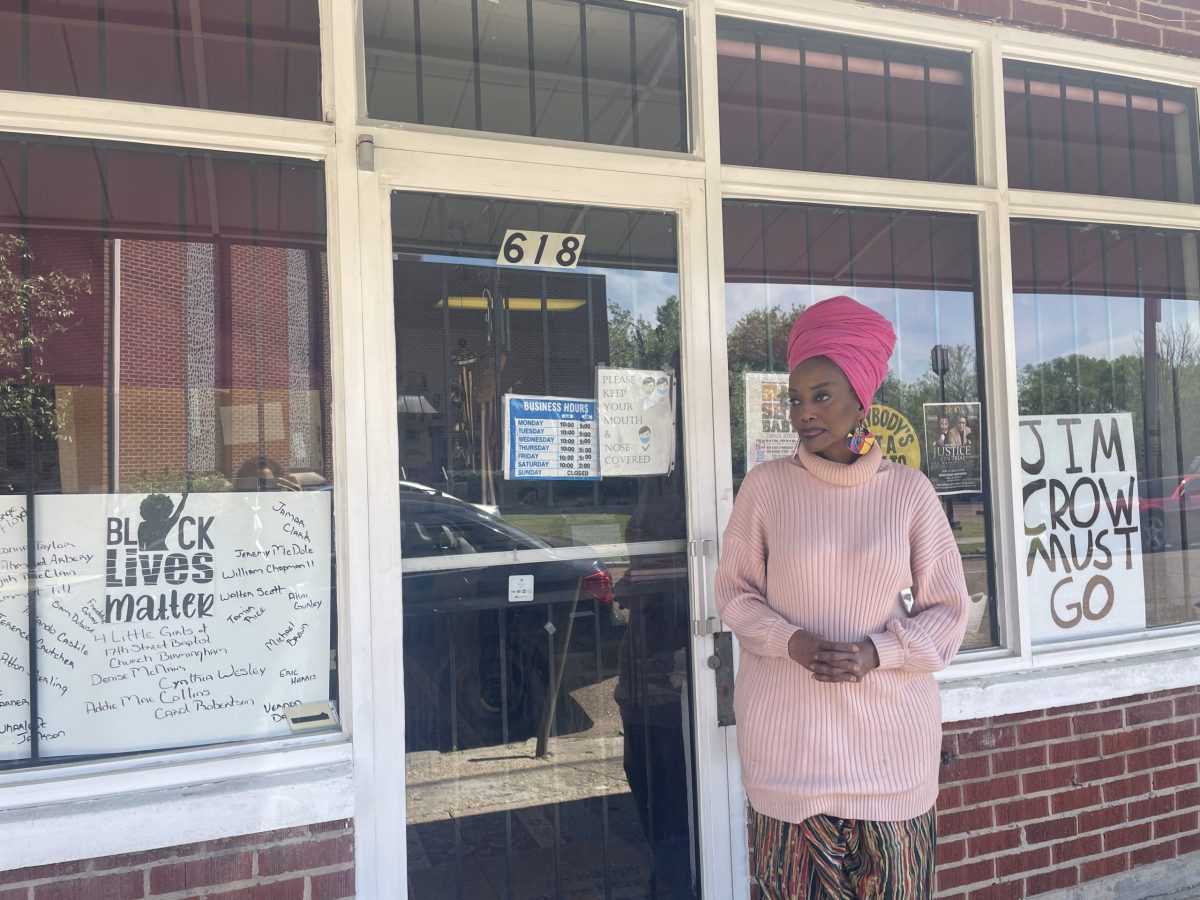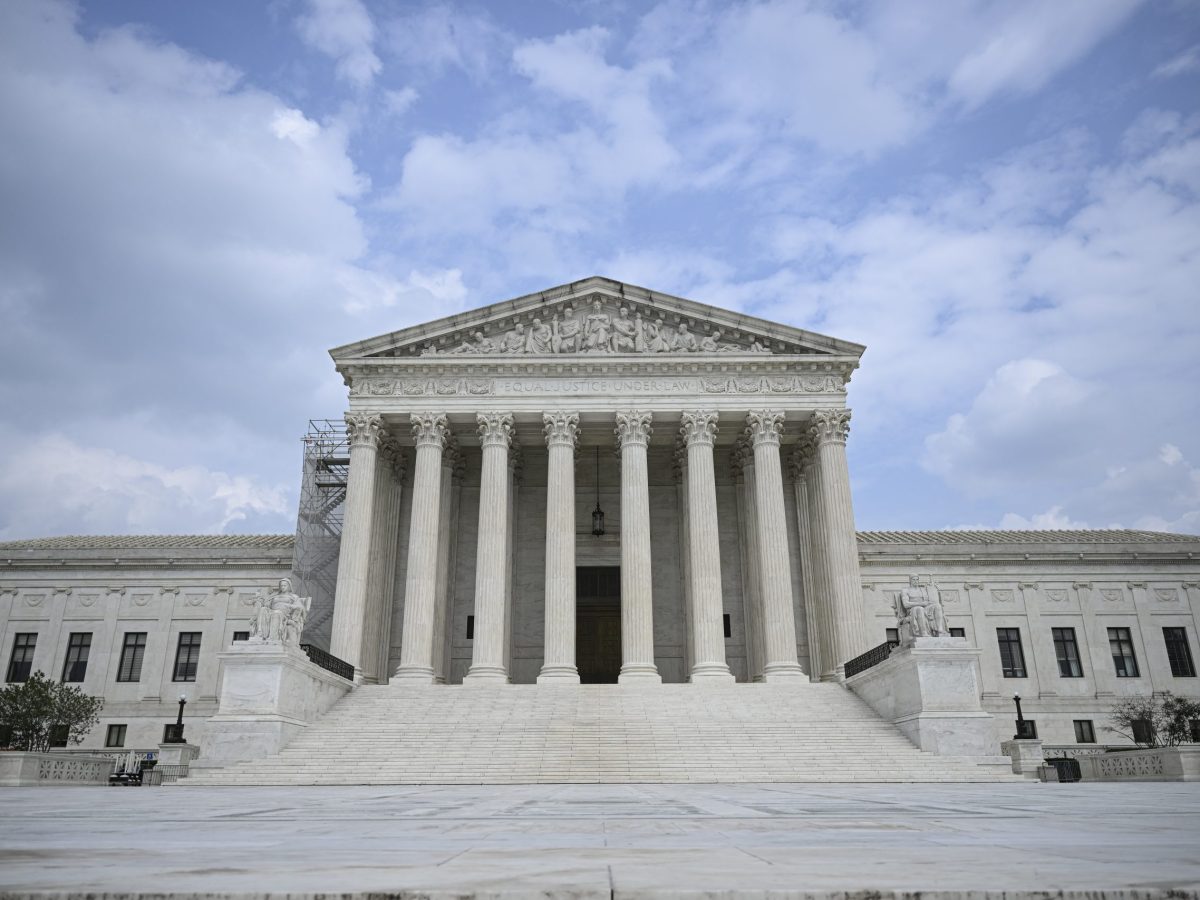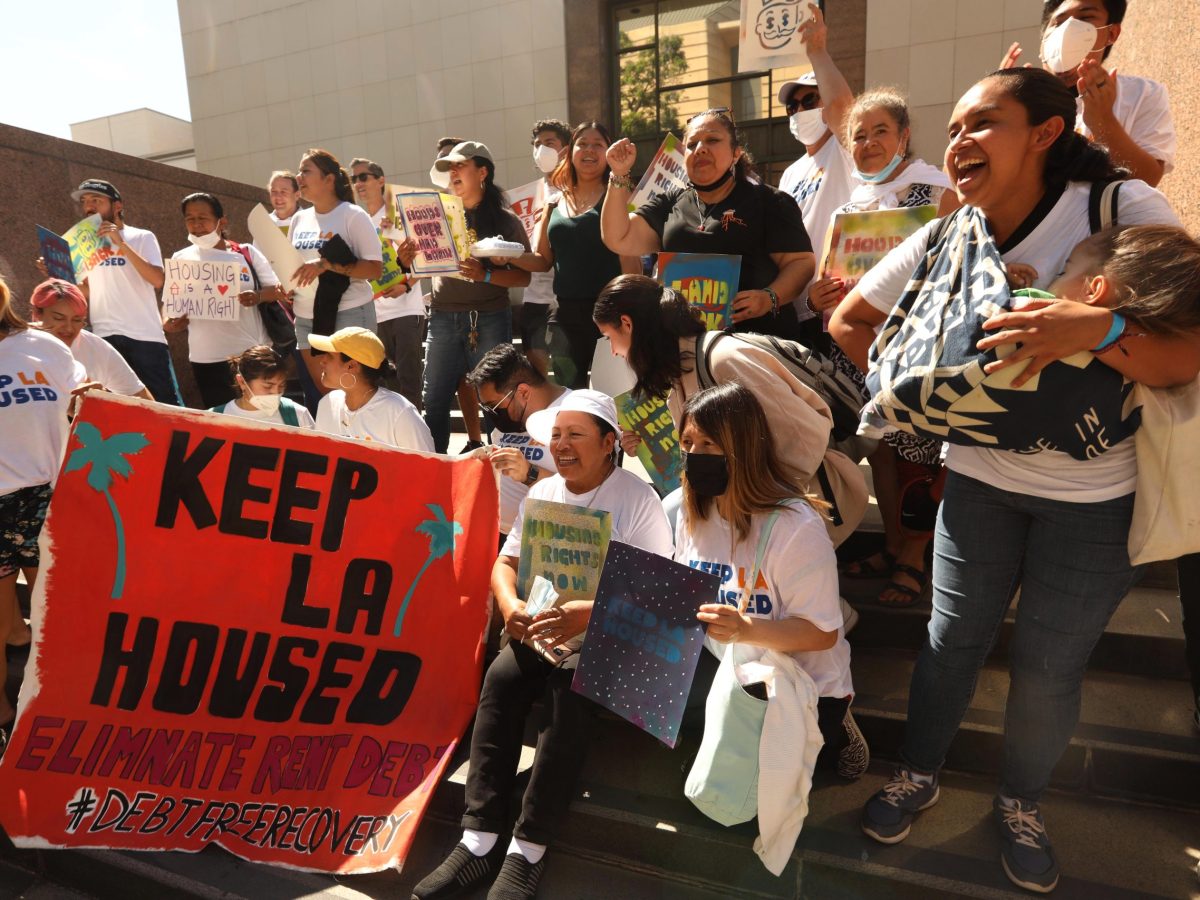JACKSON, Miss. — Farish Street has an all-too-familiar story.
Once a booming Black-owned entertainment and business district that drew Black customers from all over Mississippi, it struggled after segregation ended. Today, it suffers from the same blight and infrastructure issues as many other Jackson neighborhoods — and far too many once-segregated communities across the country.
I decided to visit Farish Street to get the perspective of small business owners on the state’s tax cut policies for an investigation published this week about a wave of such cuts pushed by conservative groups. Several told me that the state’s income and corporate tax cuts rarely benefit the Black business owners there.
“The tax cuts are for big businesses and the rich,” said Eric Collins, owner of Herbal Blessings, a health food store and vegan cafe. “As for the support our small businesses get from the state? It’s very little.”
Marshall’s Music and Bookstore, owned by Maati Jone Primm, is located a few doors down. Primm’s grandmother, an activist who came to Jackson from nearby Utica, started the bookstore 85 years ago.
“This used to be a hotspot,” Primm said. “The elders will tell you that on a Saturday, Black people used to come from all over Mississippi to come to Farish Street. You used to have to walk sideways.”
Primm connects the way the state Legislature handles taxes to a longstanding practice in the state to oppress Black Mississippians. Its tax structure – and the new reforms – benefit the state’s wealthiest, who are mostly white. And the majority-white state Legislature has long starved majority-Black Jackson of tax revenue.
She sees taxes as one tool in a box filled with policies enacted by the mostly white Legislature, including voter restrictions, limited access to medical care and underfunded public schools, that make it difficult for Black residents to thrive.
“I feel like they are attacking us,” Primm said. “It’s plantation politics. It’s absolutely awful. You have all these different attacks. It’s almost death by a thousand cuts.”
Part of that punishment, she said, is starving Jackson of tax revenue.
It’s not a new allegation. The NAACP and nine Jackson residents filed a Civil Rights Act complaint with the U.S. Environmental Protection Agency last year alleging that state decisions about Jackson’s access to tax revenue have reduced or blocked funds needed to maintain the city’s water supply, ultimately resulting in long-running problems accessing clean water. City residents suffered through a days-long outage last summer.
“It’s the culture of Mississippi that says they must oppress Black people,” Primm said. “They don’t want to share power, and they really don’t want to share resources.”
Mississippi enacted a substantial income tax cut in 2022 that moved the state to a single tax bracket, regardless of how much you make. These “flat” taxes sound equitable, in that everyone is paying the same percentage of their income in taxes. But the rest of a state’s taxes don’t work that way, sales taxes especially, and the main way governments can avoid leaning most heavily on lower-income people is with income-tax rates that increase as earnings do.
Mississippi’s tax structure already took a larger share of income from its poor and middle-income residents than its richest, according to an analysis by the Institute on Taxation and Economic Policy. The newest change will worsen that inequity. According to the group’s analysis, the state’s highest-income residents would receive an estimated $31,400 in tax cuts on average each year, while the lowest would get average savings of $20.
The state will likely see a $419 million reduction in revenue every year on average from the income tax cut, according to the University Research Center, a division of Mississippi Institutions of Higher Learning that studies state and local policies.
Primm is most concerned about what that could mean for Mississippi’s public education system, already underfunded and underperforming, especially in places with larger lower-income Black communities.

Her great-grandmother, who was enslaved, created a school. A visit to Primm’s bookstore makes her passion for education clear. As I waited to speak with Primm, she was helping provide books for a local church group. She’s stocked her store with countless books on Black culture and history, from Maya Angelou poems to soul food cookbooks to nonfiction on medical discrimination and books detailing the history of how African slavery in the U.S. began. Primm has adorned its walls with pictures of freedom fighters; Black people who have been murdered throughout the country’s history, including Emmett Till and Trayvon Martin; and modern cultural icons, like Morgan Freeman and Oprah Winfrey.
Underfunding education is a form of disenfranchisement in itself, Primm said.
“The largely white power brokers want to maintain the status quo and in order to do that, they need to disenfranchise us,” Primm said. “What they count on is the people to be silent for all of this and suffer in silence. I’m not going to do that.”







